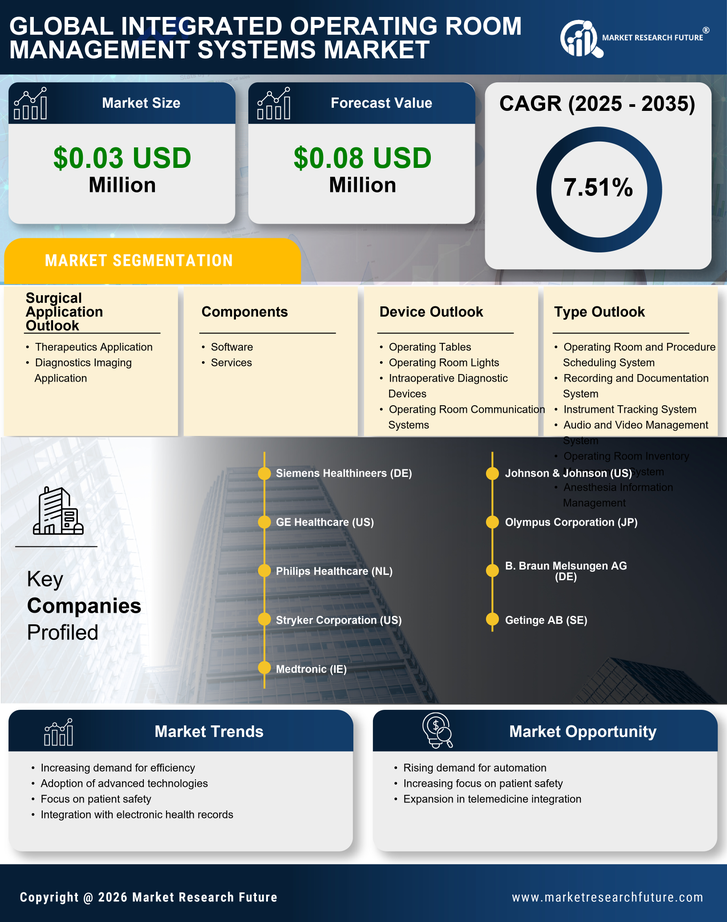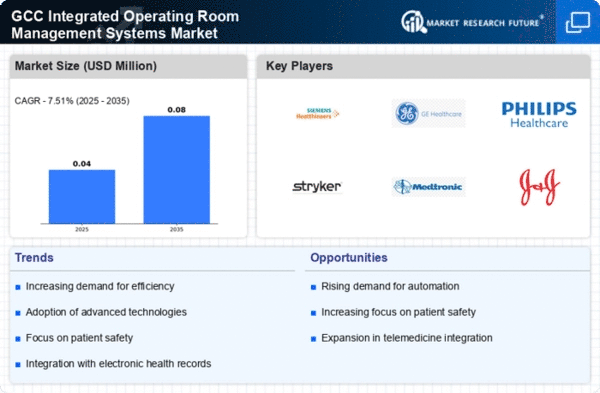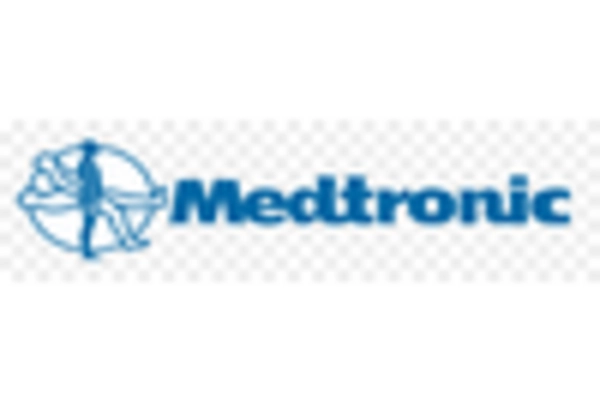Rising Demand for Surgical Efficiency
The integrated operating-room-management-systems market is experiencing a notable surge in demand for enhanced surgical efficiency. Hospitals and surgical centers in the GCC are increasingly adopting these systems to streamline operations, reduce surgical delays, and optimize resource allocation. According to recent data, the implementation of integrated systems can lead to a reduction in operating room turnover time by up to 30%. This efficiency not only improves patient outcomes but also maximizes the utilization of surgical facilities, which is crucial in a region where healthcare infrastructure is rapidly expanding. As healthcare providers seek to improve operational workflows, the integrated operating-room-management-systems market is likely to see sustained growth.
Increased Focus on Data-Driven Decision Making
In the integrated operating-room-management-systems market, there is a growing emphasis on data-driven decision making. Healthcare institutions in the GCC are leveraging advanced analytics and real-time data to enhance surgical planning and execution. This trend is supported by the increasing availability of electronic health records (EHR) and other digital tools that facilitate data collection and analysis. By utilizing these insights, hospitals can identify inefficiencies, monitor surgical performance, and improve patient safety. The market is projected to grow as more facilities recognize the value of integrating data analytics into their operating room management strategies, potentially leading to a market growth rate of 15% annually.
Growing Awareness of Patient Safety and Outcomes
The integrated operating-room-management-systems market is witnessing a heightened awareness of patient safety and surgical outcomes. Healthcare providers in the GCC are increasingly prioritizing systems that enhance patient safety protocols and minimize surgical errors. This focus is reflected in the adoption of technologies that support real-time monitoring and communication among surgical teams. As hospitals strive to improve patient satisfaction and reduce complications, the demand for integrated operating-room-management-systems is likely to grow. This trend is indicative of a broader shift towards quality improvement in healthcare, which may result in a market expansion of approximately 12% over the next few years.
Surge in Investment in Healthcare Infrastructure
The integrated operating-room-management-systems market is benefiting from a surge in investment in healthcare infrastructure across the GCC. Governments and private entities are allocating substantial funds to enhance healthcare facilities, which includes upgrading surgical suites with advanced management systems. This investment is driven by the need to accommodate a growing population and rising healthcare demands. For instance, the GCC healthcare expenditure is expected to reach $100 billion by 2025, creating a favorable environment for the adoption of integrated systems. As new hospitals and surgical centers emerge, the demand for efficient operating room management solutions is likely to increase, further propelling market growth.
Emphasis on Regulatory Compliance and Quality Standards
Regulatory compliance and adherence to quality standards are becoming increasingly critical in the integrated operating-room-management-systems market. Healthcare providers in the GCC are under pressure to meet stringent regulations and accreditation requirements, which necessitate the implementation of robust management systems. These systems help ensure compliance with safety protocols, improve surgical outcomes, and enhance overall patient care. As regulatory bodies continue to evolve their standards, the demand for integrated solutions that facilitate compliance is expected to rise. This trend may drive market growth as healthcare facilities seek to avoid penalties and enhance their reputations through quality assurance.

















